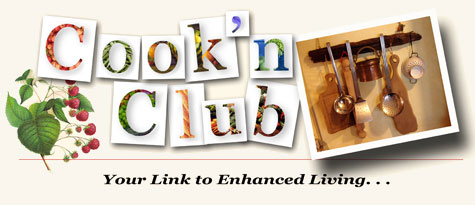Winter Gardening - Who Knew?
By Patty Liston
 I stumbled across some great information regarding winter gardening. I am so excited that I wanted to pass it on to all of our DVO gardeners who may have assumed, like myself, that once winter came with her frost and snow, my gardening days were over. Oh, not so!
I stumbled across some great information regarding winter gardening. I am so excited that I wanted to pass it on to all of our DVO gardeners who may have assumed, like myself, that once winter came with her frost and snow, my gardening days were over. Oh, not so!
 Dr. Mercola's website (Mercola.com) recently had some wonderful information about gardening during the winter months. He also had a video by David Epstein, a well known gardener, (GrowingWisdom.com) that showed how to construct a cold frame; relatively easy to construct garden frames that help you to grow your favorite produce, no matter what the temperature outside may be. Please see the bottom of this article for more information.
Dr. Mercola's website (Mercola.com) recently had some wonderful information about gardening during the winter months. He also had a video by David Epstein, a well known gardener, (GrowingWisdom.com) that showed how to construct a cold frame; relatively easy to construct garden frames that help you to grow your favorite produce, no matter what the temperature outside may be. Please see the bottom of this article for more information.
Combining these two wonderful sites, has given me a renewed excitement about year round gardening.
In his article, Dr. Mercola talks about the benefits of winter gardening as it concerns not only our health, but our pocket-books. Most of us already know that produce prices tend to rise during the winter. This is due to the longer trucking routes to get foods to snow-covered states whose orchards and fields lay dormant during the long, dark winters. Because of this, the "fresh" produce is often compromised.
He extols the virtues of winter gardening by saying:
• There are fewer pests and fewer weeds to deal with in cooler months than during the summer.
• Mother Nature takes care of some of your garden chores between September and May - she does the watering. In some regions, you can skip watering altogether and let the winter rains do it for you.
• The cold winter ground is Nature's own refrigerator. You can "store" root vegetables in the ground and harvest them as you need them - for example, carrots and beets keep very well this way.
He continues:
 "For your winter garden, your most important date to know is your "first frost" date. You'll want to plant your seeds early enough that the plants will be established before getting subjected to a light freeze. So your first step is to check your hardiness zone to see when your first frost is expected.
"For your winter garden, your most important date to know is your "first frost" date. You'll want to plant your seeds early enough that the plants will be established before getting subjected to a light freeze. So your first step is to check your hardiness zone to see when your first frost is expected.
"Most winter veggies are planted in mid to late summer so they are strong and ready for when the temperatures drop, and then ripe for harvest in winter or early spring. Timing this depends on how long each plant takes to reach maturity. Some vegetables, such as parsnips and Brussels sprouts, actually develop a better flavor if they are kissed by a light frost."
From the site:
The following lists show the best vegetables for a winter garden and how long it takes each to mature, on average. Of course, there are certain varieties of each veggie that are more suitable for cooler temperatures, and the seed packet often gives you this information. If not, make use of the staff's expertise at your local nursery - they usually know what varieties perform best in your area and are usually eager to help.
90 Days to Maturity:
Beets
Carrots
Parsnips
Rutabagas
Brussels sprouts
Globe onions
Garlic
Cabbage
Broccoli
Cauliflower
Fava Beans
60 Days to Maturity:
Early carrots
Leeks
Turnips
Kohlrabi
Early cabbage
Collard greens
Swiss chard
Peas
Kale
30 Days to Maturity:
Chives
Radishes
Leaf lettuce
Spinach
Herbs such as thyme, rosemary and sage will also do fine during a mild winter. Parsley and cilantro can be reseeded year-round in many places, whenever a fresh patch is desired. Unless you have very warm winters, avoid trying to grow corn, tomatoes, peppers, beans, squash, and melons during the winter, as they are primarily warmer weather crops.
 If you would like to learn how to construct a Cold Frame, go to GrowingWisdom.com.
If you would like to learn how to construct a Cold Frame, go to GrowingWisdom.com.
This will take you to David Epstein's website. Right under his picture at the top is a box for you to type in the information you want. I typed in "cold frame", clicked "submit", and voila! Up pops a wonderful video about cold frame winter gardening.
Let me know if you decide to take the plunge into winter gardening. I would love to know how it goes for you!

